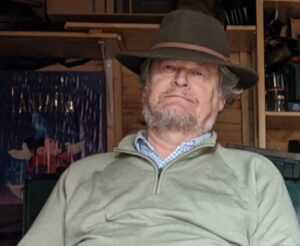11 February 2021
Trouble in the Lowlands
Sun setting on Union?
By J.R. Thomas
 There is nothing like a one party state for provoking vicious fights. Not, of course, that Scotland is yet a one party state, not yet, but it is starting to resemble one in many key elements. Try getting a politically sensitive job in modern Scotland; examine recent appointments to quasi-governmental bodies; look at the non-intrusive journalism of the mainstream media. And look at the lack of real political opposition to the Scottish National Party in Holyrood, itself a one chamber legislature, neither a very healthy state of affairs.
There is nothing like a one party state for provoking vicious fights. Not, of course, that Scotland is yet a one party state, not yet, but it is starting to resemble one in many key elements. Try getting a politically sensitive job in modern Scotland; examine recent appointments to quasi-governmental bodies; look at the non-intrusive journalism of the mainstream media. And look at the lack of real political opposition to the Scottish National Party in Holyrood, itself a one chamber legislature, neither a very healthy state of affairs.
Here we must of course give an honourable mention to Lady Davidson, formerly Ruth of that Ilk, returned to front line duties as Conservative leader in Holyrood. Not just her, there are some feisty MSP’s from both Tories and Labour on the modernist benches of the Scottish parliament, but not including Douglas Ross, leader of the Scottish Tories at Westminster, a man of forceful independence, and potentially leader in Scotland if he can win a seat up there. Labour too is in a state of misty confusion, being in the process of electing a new leader in Scotland, trying to choose between Anas Sanwar and Monica Lennon, both mainstreamers and both personally unionists. But they and the Tories and the LibDems are seen as sideshows by the Scottish media, and are fairly unknown nationally.
The whole agenda so far as Nicola Sturgeon and her party are concerned is the relentless and aggressive pursuit of another referendum on Scottish independence, one, which of course, they have no doubt they will win. And the polls support them. If a referendum were held now, 57% of Scottish electors say they would vote for independence, and in responses to a question regarding voting intentions in May’s coming national poll, the SNP would win 71 seats out of the 129 Holyrood seats, reducing each of the opposition parties to minor rumps, divided on almost every ground except support of the union of the UK.
To the legendary observer from Mars, this would seem bizarre. Scotland’s polity is in a bad way. The economy is entirely dependent on support from the Whitehall exchequer, and growth, even pre-Covid, was dismal. Educational standards have consistently fallen over the last 20 years, taking Scotland from the top of the United Kingdom educational league table to the bottom. The legal system is becoming regarded with some alarm, the latest instance being of Scotland’s leading football team, Rangers, where the Lord Advocate for Scotland is shortly to explain the circumstances which have led the Crown Office to apologise and pay £23m damages for wrongful prosecution to two financial officials of the club. The Covid-19 response has been weak, certainly weaker than in England in spite of Ms Sturgeon’s assertions to the contrary, and the vaccination programme is slow and faltering. The SNP policy on independence is itself a strange self-contradiction – not only would an independent Scotland in such circumstances cherry-pick key parts of English economic input (by which we rush to make clear that includes also Wales and Northern Ireland and, alright, yes, the Isle of Man and Jersey and Sark and all other parts of these islands where so relevant) such as the pound and continuing tax transfers north, but also apply immediately to join the European Union. Out of the small frying pan into the forest fire you might think, but that is a matter, if the time comes, for the Scottish electors, and anyway they will need money from somewhere.
But all of this is as nothing beside the increasing civil war within the SNP itself, between the old guard and the new. The old guard is the familiar figure of Alex Salmond, effectively the founder and prime mover of the SNP, and the man who made the concept of Scottish independence not only feasible, but popular. The new is headed by the SNP’s current leader Ms Sturgeon and the long serving chief executive of the SNP, Peter Murrell. Both were Salmond acolytes and loyalists, both broke away after a series of U turns politically as to his leadership intentions by Mr Salmond. And both are married – to each other. That is a lot of power in one kitchen, and a lot of potential conflicts of interest you might think. And that is now becoming apparent.
The immediate cause is an alleged sex scandal surrounding Mr Salmond. The details are readily available elsewhere. Suffice it to say that Mr Salmond was accused first by his party of conduct unbecoming, which he fought off, then became the subject of several criminal cases, all of which he won, together with damages for his treatment. There is now a long-running public enquiry, chaired by a SNP MSP, into the events that surrounded the prosecution (and, Mr Salmond would say, persecution) of this case. The Scottish government has not entirely cooperated with the enquiry, Ms Sturgeon has contradicted Mr Murrell and he her (and, indeed himself) on who knew what and told who and when. A front bench spokesman of the SNP has been fired, ostensibly for not toeing the line on party policy on transexism, but perhaps more for her open support for Mr Salmond.
Mr Salmond is far from being without internal support from all levels of the SNP, and it is not completely inconceivable he could yet return to lead his party. It is though inconceivable to Ms Sturgeon, who can see the Holy Grail of independence not far ahead and in her grasp. Ms Sturgeon remains hugely popular within Scotland. Mr Salmond still has much support.
So, if you were a politician wanting to fight the fight for the Union, everything is going your way, yes? It seems not. The local non-SNP politicians are unknowns, pretty much, and apart from Ms Davidson are easily steamrollered by Ms Sturgeon. They may be united by the cause of unionism – though the two vying for the Labour leadership cannot even agree as to whether to support a further referendum or not. Mr Ross has fallen out with his party leadership in London. Nobody really knows anything about the LibDems in Scotland or what they think.
And in Whitehall? Mr Johnson has of course much on his mind. One of his files is marked “Union – Scotland” and occasionally it rises to the top of his to-do pile, with a little yellow post-it half stuck to it, saying “Pay a Visit”. So Boris scurries up to Scotland, dons his white coat and appropriate protective head gear, and makes a speech about how we must all love the union, and hurries back south. The rest of cabinet nervously look in other directions when, at the next cabinet meeting, Boris suggests somebody else should go next time. Even and especially Michael Gove, who, dash it, is a Scot.
The unionist cause, let’s face it, is being lost by default. Nobody south of Berwick on Tweed seems to care very much one way or the other. That’s fine if you think it is a matter for the Scots to decide, but if so give them another referendum, and stop muttering about the value of the union. Because, you supposed bold determined died-in-the-wool lovers of the United Kingdom, there has never been a better opportunity to argue the cause. The Scots Nats are a disastrous and inept government, pre-occupied with infighting. Take the battle to them. Or for ever, hold your peace and wave the Scots goodbye.


